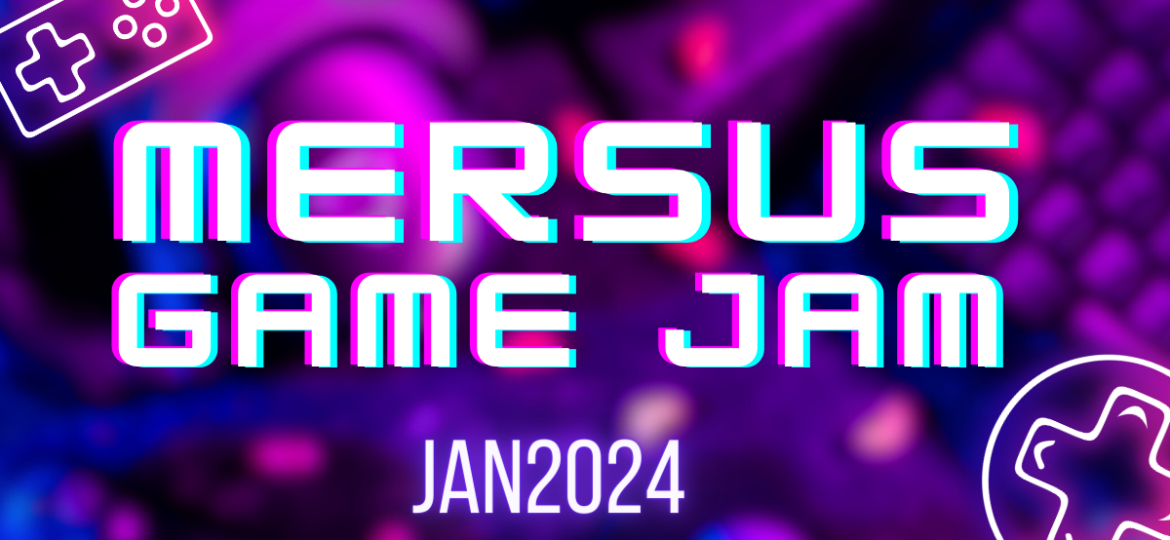
Kicking off January with something fun, Mersus Technologies held our first Game Jam! The intention of this event was to allow people to get a closer look at the skills of their colleagues in different roles, to test the capabilities of our own Software Development Kit in a different context than usual, and of course fun team building. Michael Connolly Lecturer in Animation in Games and Extended Realty from Dundalk Institute of Technology popped in and was delighted to offer his creative and technical advice.
The Setup
All Mersus staff were put into four teams and were tasked with brainstorming, developing and presenting a VR experience in one and a half days. There were three awards up for grabs: Best Overall Gameplay, Best Teamwork, and Best Art Direction. Each team was picked to ensure a mix of creative and technical skills, and also to bring people together who don’t usually work on projects directly. The theme given was the Future of Work.
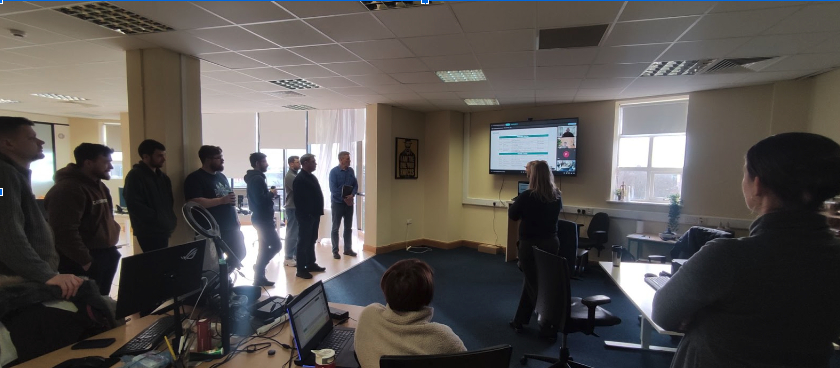
The Challenge
Working with the starting point of the Future of Work, each team had to come up with an idea for a game in VR, and build it. Having such a short deadline was intense, but it certainly helped focus people’s minds on what could be achieved and begin developing ideas as fast as possible. Teams were free to build 3d assets and environments, or reuse/modify assets and environments from our own asset library.
Team Dynamics and Creative Process
The Game Jam gave all team members the chance to work in a creative role and try out finding creative solutions to different problems. It was an interesting experience to see where each person would fit into the new teams.
Some members were in the office and some were joining their teams remotely. Different teams used different strategies to keep their remote colleagues at the heart of the process of planning and delivering the game. Some teams kept a video call open throughout with all members logged in as a virtual hang out space. Having a dedicated slack channel also acted as record keeping for one team, which came in useful when one team member dropped out and another joined on the second day due to illness. Members dropping in and out of teams showed the importance of the multi disciplined work we do, as their duties were picked up without much difficulty by the remaining team members.
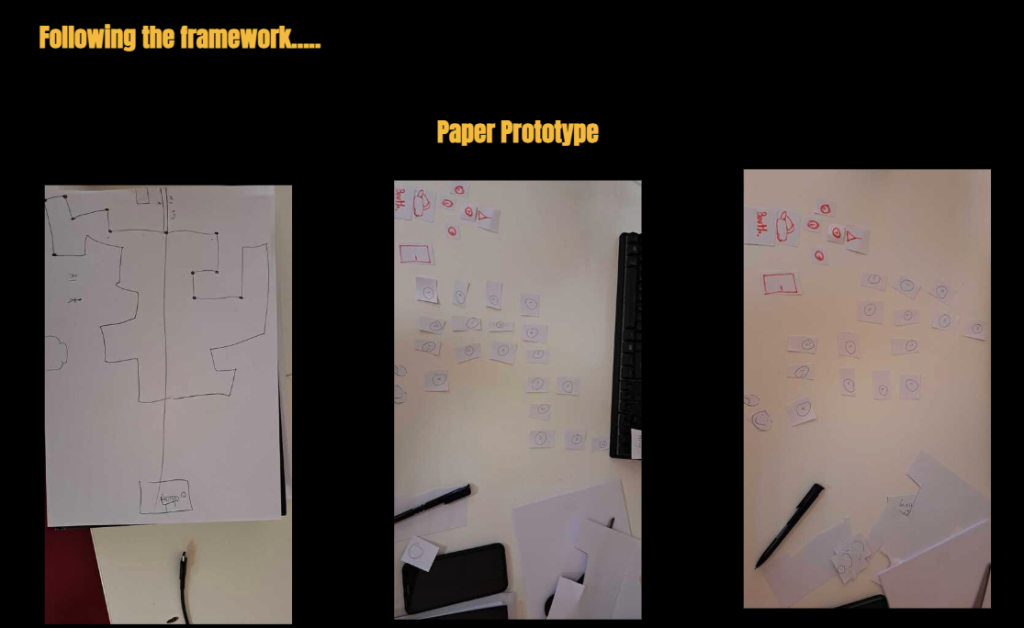
Lessons in Versatility
One crucial aspect of the Game Jam was that we are not a games studio, and our SDK is not intended as a games development tool. Testing out the SDK’s abilities in the non-familiar environment of creating games was intended both as a demonstration of its capabilities, and also to give staff less familiar with the SDK a chance of seeing it applied to a project of their own choosing.
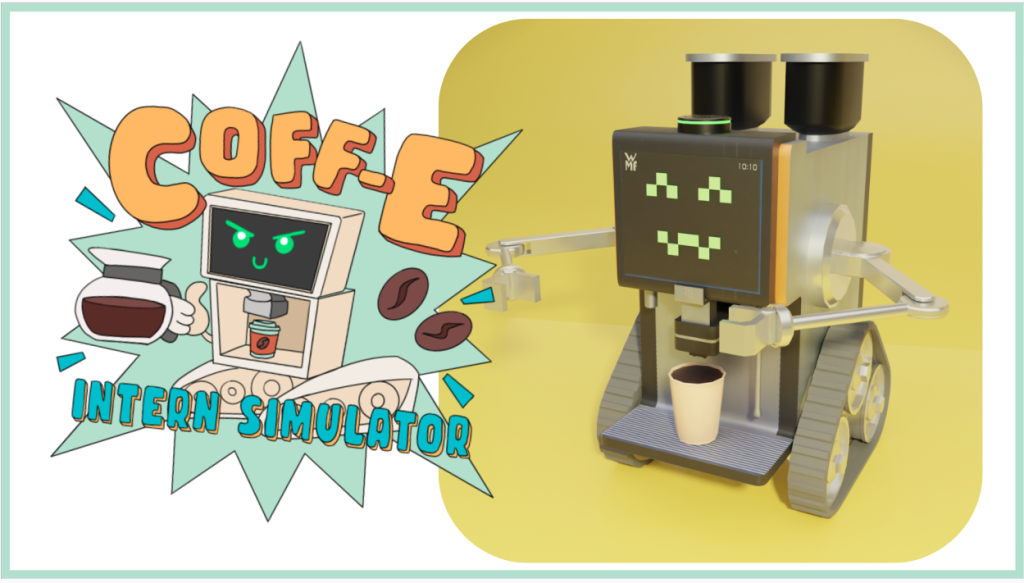
The theme “the Future of Work” was chosen deliberately, since we make training products and that would give the teams a chance to make some version of gamified training if they chose to. But of course, the teams used the title as a starting point and went in a variety of different directions – one team made a game where the player builds a robot coffee-making intern to help them… until it turns evil. Another made a game called Megacorp set in the dystopian future where the world is run by huge, mega corporations, and one team chose to make a game where the player must complete tasks in a confusing office environment while dodging their boss. Team “the One Who Knocks” made a maze game which was a race against time where the player is pursued by a rogue AI. It looks like we mostly have a bleak outlook on the Future of Work, or perhaps evil robots are just a fun story to tell!
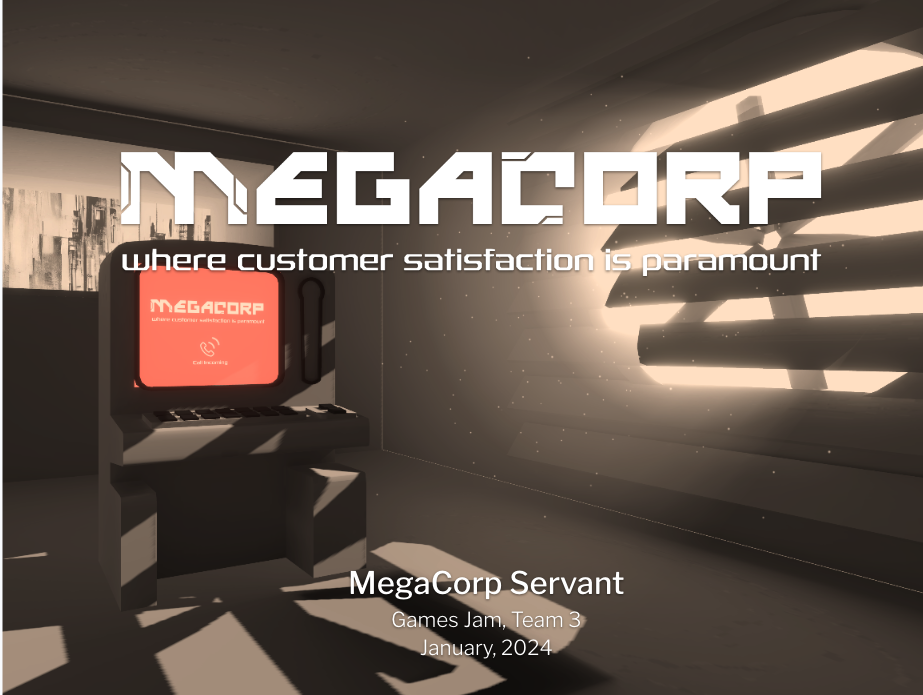
As well as seeing the diverse uses we could put our internal toolkit to, the Game Jam was also a lesson in the versatility of staff. Asking for thoughts and input from people outside of the relevant discipline is crucially important as solutions for a problem can be found in any background – those in creative roles aren’t the only ones who think creatively. This is especially true when people involved are cross disciplined and understand the problem that the team is facing.
Challenges and Learnings
The Game Jam was an eye-opener in terms of understanding and adapting to rapid project development under time constraints. Teams learned to quickly align their creative visions with realistic goals, managing the balance between ambition and feasibility. The necessity to think on their feet led to innovative problem-solving, particularly when technical hurdles or team changes arose. This exercise in adaptability and rapid development provided invaluable insights into the strengths and areas for growth within our team dynamics and the flexibility of our SDK. Embracing these challenges, the teams not only honed their technical and creative skills but also developed a deeper appreciation for collaborative effort and the diverse talents within Mersus Technologies.
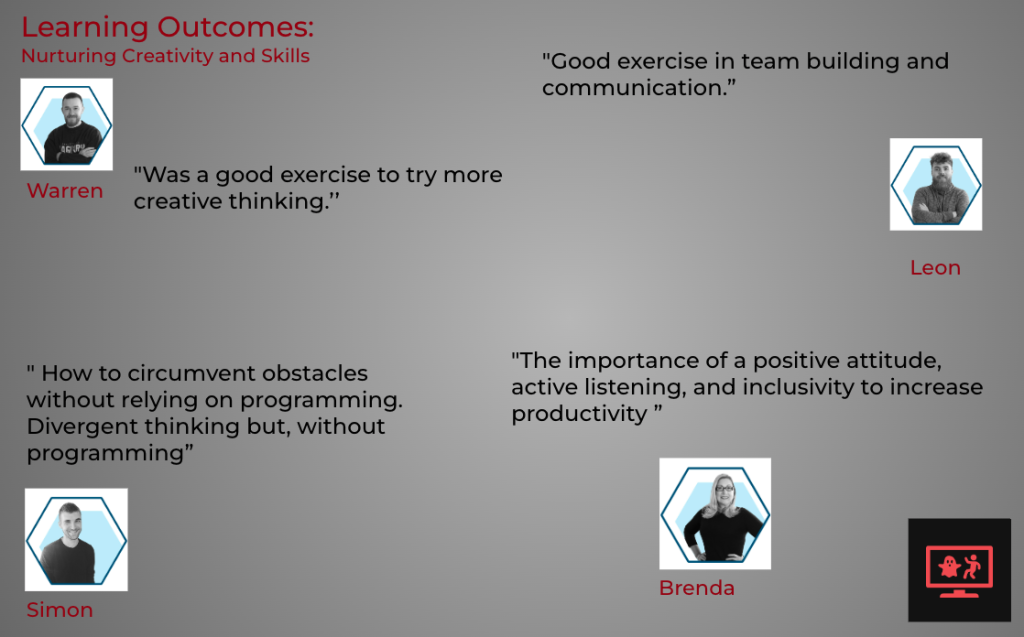
Key Outcomes
A lot of people reported enjoying seeing what other people did in their roles, and gaining insights into aspects of the process of VR creation that they are not usually involved in. We were impressed with the surprisingly polished results achieved by the teams in such a short time.
Results and Winners – and CONTROVERSY!
Team 4 won Best Art Direction for Coff-E, and Team “The One Who Knocks” won Best Teamwork. When it came to the highly sought-after Best Gameplay award, Team Megacorp enthusiastically aimed for victory. However, the plot twist unfolded as they were hit with disqualification! Team Megacorp, facing a glitch, opted for a creative workaround by crafting custom code. The rulebook clearly stated “NO CUSTOM CODE,” only the functionalities of the SDK. Their desire to showcase their game in all its glory led them to bend the rules. They decided to take the risk anyway, thinking their creativity would impress the judges. Alas, their craftiness cost them the prize, and Team Megacorp found themselves on the sidelines, disqualified!
Future Game Jams
Now that we have experienced a Game Jam on an extremely tight schedule, we are looking forward to the next one, knowing that we will have a better understanding of what is possible in that short timeframe. Mixing up staff into new combinations is bound to result in more great ideas and more unusual solutions to problems.
The success of this Game Jam has set a strong foundation for future events. We anticipate these Jams will continue to foster creativity, team cohesion, and a better grasp of our SDK’s versatility. It’s exciting to think about how these experiences will translate into our daily work and future projects.
All in all, we had a very successful Game Jam. People tried out some fun ideas, stepped out of their comfort zones, and embraced new challenges. The enthusiasm and ingenuity displayed by everyone involved were truly inspiring. We’re already buzzing with anticipation for the next Jam, eager to see what creative concepts our teams will bring to life as we continue to blend the realms of VR development and playful innovation.